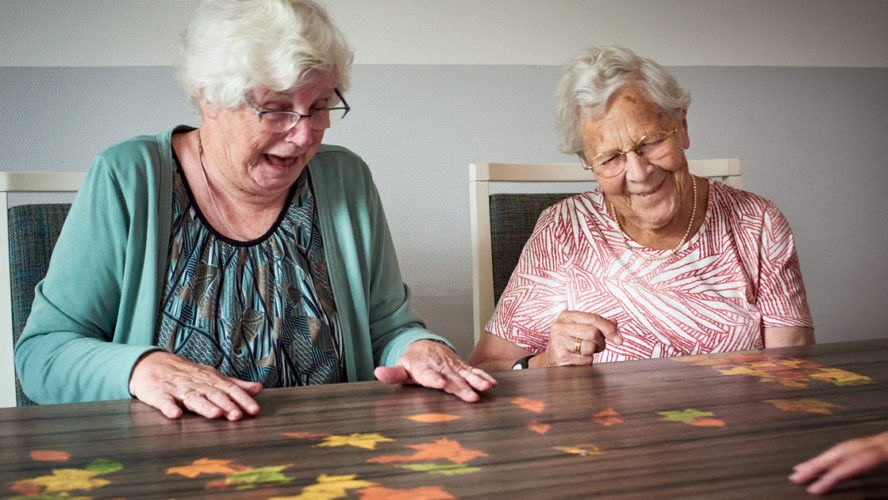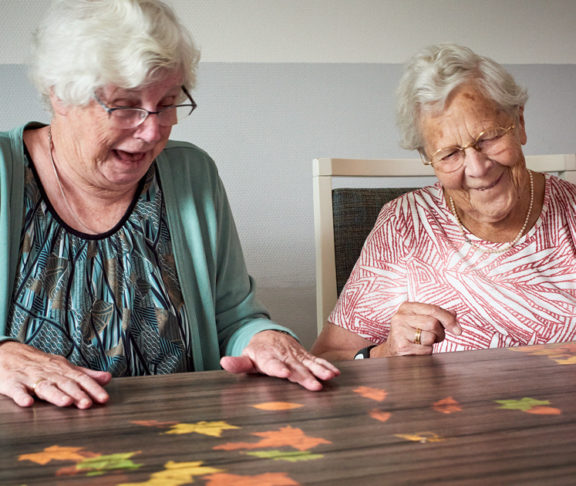
Alena Ulicka
Senior Activity Leader, CareChoice Montenotte nursing home

Marjie Seinen
User-centred Designer, Tover
People living with dementia can be mentally stimulated by purposeful play activities, including sensory technology that projects interactive games onto a tabletop or floor.
Adults living with dementia or intellectual disabilities can benefit hugely from purposeful play, says Alena Ulicka, Senior Activity Leader at CareChoice Montenotte nursing home in Cork. As its name suggests, purposeful play is done for a reason: to stimulate minds and enrich lives.
Stimulating patients with purposeful play
“When people hear the word ‘play,’ they tend to think of children in a playground,” says Ulicka. “But purposeful play is different. It’s something that senior residents can join in with and be cognitively stimulated by, which is especially important for those living with advanced dementia.”
Ulicka and her team provide a range of supervised activities including painting, baking and gardening. Crucially, all are interactive.
People can make connections with each other through this type of play.
Alena Ulicka
Another way of providing mental stimulation for those living with dementia is with sensory technology called a Tovertafel — Dutch for ‘magic table.’ This projects interactive games onto a tabletop or floor which can provoke powerfully positive reactions in people. “We call these reactions sparkle moments,” explains Ulicka. “A resident sitting at the table may not do anything at first. But then they see the images and realise that they can touch them and play with them. There’s a sparkle in their eyes when they understand that this is something exciting and new.”
Developed in the Netherlands, Tovertafel’s games are co-designed with people living with dementia, carers and relatives. Tover’s user-centred designer, Marije Seinen, explains how it works: “All our game ideas are based on suggestions from the field. We try our designs together on-site, observe the gameplay very closely, record it on video and gather valuable information for developing the prototypes, which we then test again with everyone.”
Making connections helps to spark reminiscence
The Tovertafel can also help people reminisce. One of its games involves ‘decorating’ a Christmas tree, which can lead to memories of past Christmases.
“Some residents with dementia don’t always recognise members of their own family, so the Tovertafel will be a fun and stimulating way to bring them together,” she says. “People can make connections with each other through this type of play. And if we’re not successful at first, we keep trying until we are. Because that’s the challenge with dementia. The person is there. We just need to ‘find’ them.”



